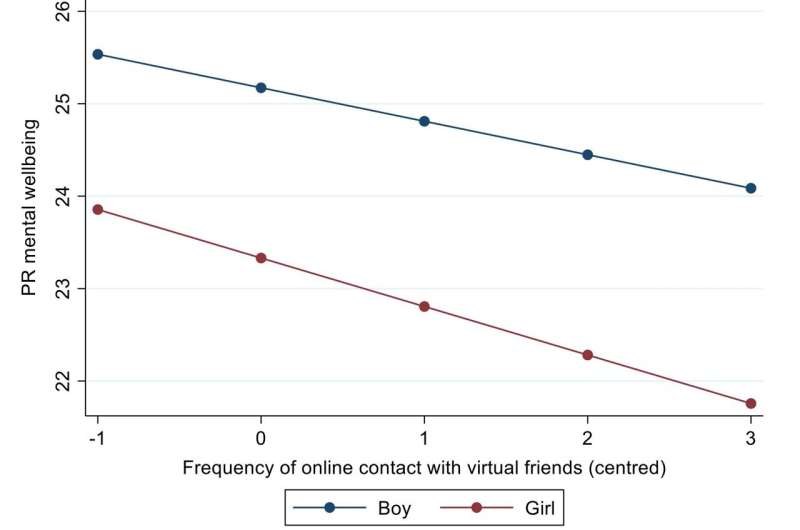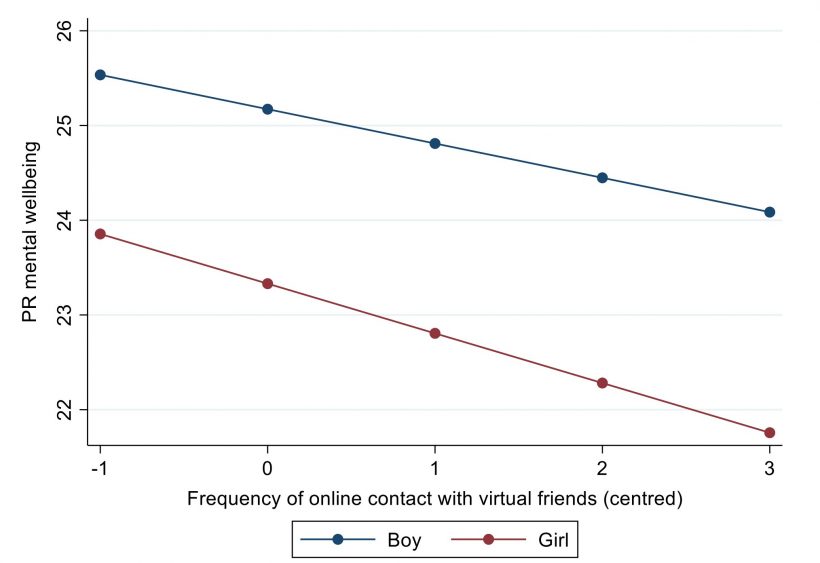
Frequent online communication with best friends and existing friendship groups is associated with better well-being in young people, new research by Cardiff University has found.
Led by the Centre for the Development, Evaluation, Complexity and Implementation in Public Health Improvement (DECIPHer), the study found that boys and girls communicating with “real life” friends online had higher levels of well-being.
They also found that virtual friendships—those made only online—were linked with lower mental health and well-being, with the effect being more pronounced in girls than boys.
The team suggests this gender difference may be because girls’ friendships tend to be more intimate and fragile, which virtual friendships may lack in relation to the former and can heighten in the latter.
Lead author Dr. Rebecca Anthony said, “Research examining the effects of online communication have mostly focused on screen time, which may be over simplistic and fails to consider specific nuances such as how adolescents are communicating and with whom.”
“Our results indicate the importance of considering the nature of adolescent online communication. Rather than just its quantity, interventions to improve young people’s well-being should consider the positive association between online communication and adolescent well-being, while limiting harms.”
The nationally representative research used data from over 38,000 11-16 year-olds in Wales via the School Health Research Network (SHRN) 2019 Student Health and Well-being (SHW) survey.
Young people were asked a number of questions about how often and why they used social media, whether they felt they could talk easily to friends and whether friends were able to share their sorrows and joys. They were also asked about cyberbullying and online victimization.
Dr. Anthony added, “Online communication is a huge part of adolescents’ lives, and more research is needed to look at the complex relationship with mental well-being.”
“Rather than overemphasizing the significance of time spent online and uniformly castigating online communication as something that needs to be heavily monitored and controlled, digital literacy education for young people should acknowledge the possible benefits of online communication with existing friendship groups.”
Source: Read Full Article
